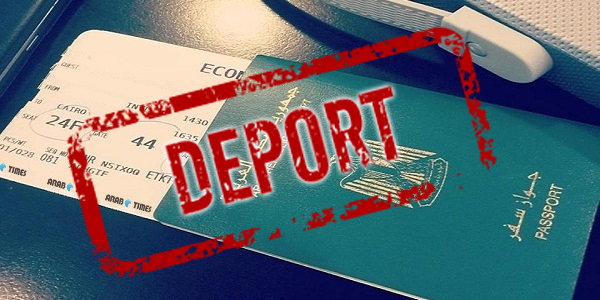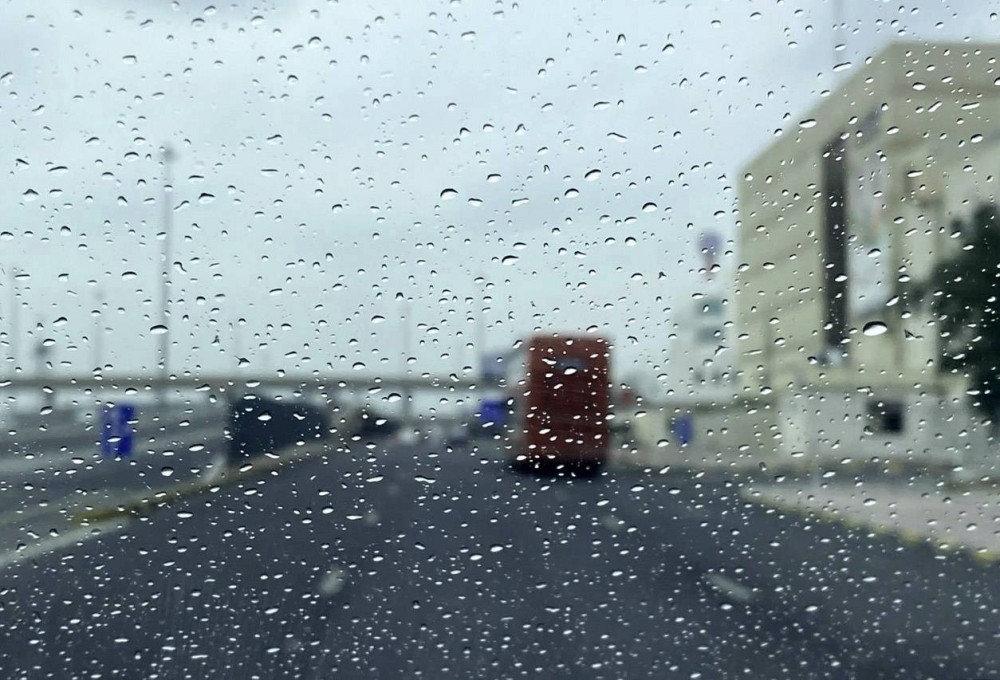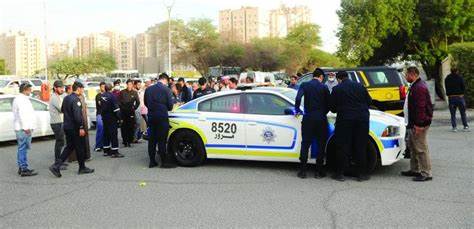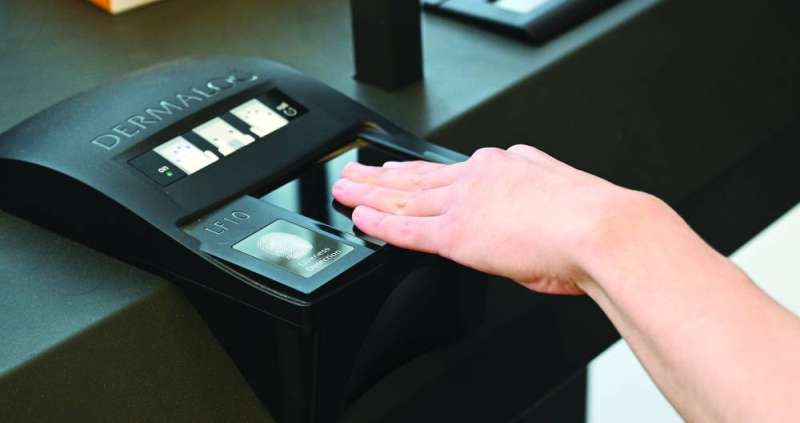Kuwait News


KUWAIT: A citizen was referred to the Central Prison for opening fire near an army camp in Subhan, in addition to the possession of two shotguns, bullets and knives, reports Al-Rai daily. Case files indicate that the citizen used a shotgun to hunt for birds in a reserve belonging to a special army camp in Subhan. The Army Operations Department received a report about the sound of gunfire at the camp gate. Camp patrols immediately searched the source of the sound, during which they noticed a vehicle, but the driver fled from the scene.
The officers chased him but their efforts proved futile as they failed to arrest him. The shooting scenario was repeated the next day in the same place. One of the patrols headed to the site and arrested the owner of the vehicle (SUV). Upon checking his data, the officers confirmed that he is a citizen. They also found two shotguns, knives and bullets when they searched the car. The police station in the area was notified and a case was registered. A security source told the daily that during interrogation, the citizen admitted to firing a shotgun to hunt birds to feed his falcon. He was then referred to the Central Prison as per the directive of the investigator, the source added.

KUWAIT: The Egyptian expat who appeared in a video clip saying, “It is known that the entry visa to Kuwait is for Egyptians” has been deported. In the video, he said, “The cost of a work visa has reached 400,000 to 500,000 Egyptian pounds for anyone who wants to work in Kuwait. As for those who work for a company, it is free.” He was arrested and referred to the deportation department for violating the laws. Earlier, the Security Media Department of the Ministry of Interior announced that the General Department of Residency Affairs Investigations arrested an Arab national for posting a video clip, which contained false and incorrect information and data and is considered interference in government procedures and measures, on social media.

KUWAIT: The Ministry of Interior has opened an investigation into the case of a citizen who was allegedly stabbed by his friend, reports Al-Anba daily. Attempted murder case no. 15/2024 was registered under the title, ‘Mutlaa Felony’. The Jahra prosecutor ordered the arrest of the suspect for investigation and referral to the judiciary. A security source told the daily that the Jahra Operations Unit received a report that a person with stab wounds was taken to Jahra Hospital. He disclosed that patrol officers were dispatched to the site and they found out the injured, who was born in 1998 , got severe and moderate injuries.
During the investigation, the injured stated that he was in his vehicle plying through Barr Al-Mutlaa (kilometer 10) with his friend who is residing in the country illegally. He said the bedoun stabbed him with a knife due to a dispute between them, and then the latter took him to Jahra Hospital. Upon their arrival at the hospital, the injured jumped out of the vehicle for fear that the suspect would change his mind. The medical report showed a deep wound in the right forearm with bleeding, another deep wound in the left forearm with bleeding, a suspected cut in the right brachial artery, and abrasions and bruises on the feet.
On the other hand, the deputy public prosecutor ordered the detention of an expatriate in Saad Al-Abdullah Prison for carrying an unlicensed firearm and threatening to kill some individuals (Saad Al-Abdullah Felony Case No. 22/2024). According to a security source, a citizen born in 1968 submitted a report to Saad Al-Abdullah Police Station, stating that an expatriate (23 years old) entered his house at around 1:00 am carrying a gun and threatened to kill his two sons. He did not explain the relationship between the accused and his two sons, whose ages are almost the same as that of the accused. The two sons will be summoned soon to verify the report.

KUWAIT: Meteorologist Issa Ramadan forecasts light southeasterly winds will prevail on Monday, moderating and becoming more active at night, with the likelihood of increased rain on Tuesday, potentially accompanied by thunderstorms at times, reports Al-Qabas daily. Weather conditions are expected to stabilize by Wednesday, accompanied by a rise in maximum temperatures, possibly reaching near 40 degrees Celsius by the end of the week.
This increase in temperature is attributed to the influence of “Suhaili” winds, which are southwesterly winds originating from the desert. Ramadan advises caution for beach and garden enthusiasts due to the sudden rise in waves during the “Sarayat” period. “Sarayat” is a weather phenomenon that typically occurs over Kuwait and the region from mid-April, sometimes extending beyond mid-May. During this period, cumulus thunderclouds are abundant, forming locally in the transitional phase between spring and summer. These clouds form when cold upper atmospheric layers interact with warm and humid surface layers, creating ideal conditions for the development of “climate” clouds.

KUWAIT: A specialized report released by Kuwaiti company Dar Al-Sabaek highlighted on Sunday that heightened military and geopolitical tensions are the primary drivers behind the significant surge in gold prices observed since the beginning of last week, resulting in prices reaching a new peak. Despite experiencing some profit-taking activities, with gold prices temporarily settling at $2,345 per ounce by the end of last Friday’s session, they remain historically high due to ongoing military operations in the Middle East and the detainment of commercial ships near the Arabian Gulf.
The report anticipates that gold prices will continue to rise throughout the week as long as military tensions persist in the region, particularly following recent attacks launched by Iran against the Israeli occupation. Geopolitical factors currently outweigh technical considerations, propelling gold prices sharply upward, as witnessed last week with a $150 per ounce increase before a correction occurred towards the end of trading. Gold futures contracts for delivery in June surged to $2,374 per ounce, marking the eighth record level reached in less than a month, after peaking at $2,448 during the previous week.
The report predicts further increases when markets open the following day, emphasizing the continuous presence of factors driving gold to its highest levels. Central banks, notably the People’s Bank of China, continue to bolster gold reserves, with China increasing its holdings by 12 tons in February, totaling 2,257 tons. Gold is currently viewed as a crucial investment amid geopolitical risks, with investors closely monitoring developments in the Middle East, American and Chinese economic events. The report anticipates gold reaching new peaks throughout the week as long as military risks persist, particularly in the Middle East.
In the local market, the price of 24-karat gold stands at 23.5 dinars per gram (approximately $71), while 22-karat gold is priced at 21.55 dinars per gram (around $66). Silver closed at 328 dinars per kilogram (approximately $1,000). Note: The ounce is a unit of mass measurement, equivalent to 28.349 grams in some systems and 31.103 grams in the measurement of precious metals. (KUNA)

KUWAIT: In compliance with the instructions of Assistant Undersecretary for Operations and Traffic Affairs at the Ministry of Interior Major General Yousef Al-Khadda, the Traffic Sector carried out a weeklong campaign that resulted in the issuance of 21,858 citations for various violations; impounding of 130 vehicles; arrest of 48 violators and reckless persons; referral of 23 juveniles to the Juvenile Prosecution; arrest of 12 persons wanted by law for involvement in security and criminal cases; and six others for the possession and consumption of narcotic substances, reports Al-Jarida daily. Officer in the Public Relations and Traffic Awareness Unit at the General Traffic Department (GTD) Lieutenant Colonel Abdullah Bu Hassan disclosed that the Traffic Sector had earlier laid down an integrated traffic and security plan; covering all roundabouts, main roads, highways and external roads to ensure the smooth flow of traffic in the last week of Ramadan.
He revealed that certain roads witnessed major traffic jams; especially those near the mosques, worship places, commercial complexes and public markets. He said the continuous field monitoring indicated an increase in the number of reckless drivers including juveniles who were driving without a license before the breaking of fast. He added the plan was implemented through the coordinated efforts of the traffic departments in the six governorates, Traffic Operations Department, Special Traffic Tasks Department and Traffic Investigation Department. He affirmed that the traffic and rescue patrols from various departments controlled the security and traffic situation in front of mosques, places of worship, complexes and markets. He stated that they arrested reckless people in residential areas and other locations throughout the country; in addition to the issuance of 21,000 traffic citations and impounding of 130 vehicles. He added serious traffic violations were uncovered, such as reckless driving, speeding and intentional disruption of traffic movement, particularly in front of commercial complexes. He confirmed the traffic and rescue personnel arrested 23 juveniles for driving without a license, impounded 25 illegal motorcycles, nabbed some motorcycle riders who drove beyond the speed limit and performed stunts on the roads, and 48 individuals were arrested for recklessness on the roads.
All those arrested were taken to the detention centers of the General Traffic Department, he added. He went on to say that 12 persons wanted by law for involvement in security and criminal cases were arrested and referred to the Sentences Enforcement General Department; while six others were arrested for the consumption of narcotics with narcotic substances and drug paraphernalia in their possession. These six individuals were referred to the Drug Control General Department.

KUWAIT: With a three-month deadline for mandatory biometric fingerprinting set to expire in June, Kuwait has implemented home biometrics services for certain individuals unable to visit Interior Ministry centers.
Kuwaiti Deputy Prime Minister, Minister of Defence, and Acting Interior Minister Fahd Al Yousuf has issued directives to provide necessary biometric equipment for conducting the service at home, specifically targeting the elderly and those with illnesses preventing them from visiting ministry centers.
The primary goal of these directives is to streamline the fingerprinting process for individuals facing compulsory requirements.
The Kuwaiti government has mandated that both citizens and expatriates undergo fingerprinting within three months, starting from March 1, to retain access to Interior Ministry services. Failure to comply with this obligation will result in the suspension of all ministry transactions.
According to ministry officials, personnel are actively taking biometric fingerprints of Kuwaitis, citizens of other Gulf Cooperation Council countries, and expatriates at various border outlets, Kuwait International Airport, and specific centers within security premises nationwide. Travelers are permitted to leave Kuwait without undergoing fingerprinting, with the procedure to be completed upon their return.
To facilitate the process, Kuwaitis and expatriates can now schedule fingerprinting appointments via the Sahel app for unified government electronic services, as confirmed by an official spokesperson.
Yousef Kazim, Sahel’s spokesperson, explained that the booking system allows individuals to select their preferred site and available time slot for fingerprinting. Upon receiving a confirmation alert for the appointment, individuals must present either the “My Identity” app or their civilian identification card when undergoing fingerprinting.
Foreigners constitute approximately 3.2 million of Kuwait’s total population of 4.8 million, underscoring the significance of these biometric measures in maintaining national security and governance protocols.


